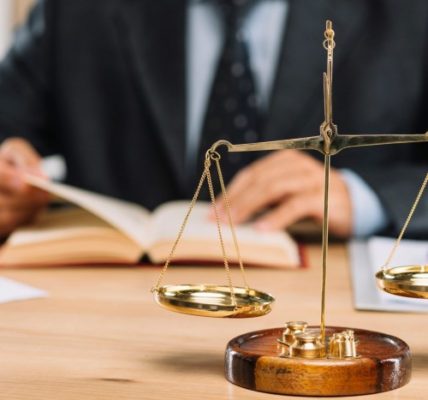Introduction
Motorcycle accidents can result in serious injuries and significant damages. When pursuing compensation for such incidents, building a strong case is crucial. One of the foundational pillars of a successful motorcycle accident case is thorough evidence gathering. In this comprehensive guide, we’ll explore the essential steps and strategies for collecting compelling evidence to support your case effectively.
Understanding the Importance of Evidence
Evidence serves as the backbone of any legal case, including motorcycle accidents. It provides the necessary facts and documentation to establish liability and quantify damages. Without sufficient evidence, proving fault and recovering fair compensation can be challenging. Therefore, meticulous evidence gathering is essential to bolster your case and increase the likelihood of a favorable outcome.
Initial Steps After the Accident
Immediately following a motorcycle accident, prioritize your safety and well-being. Once you’ve ensured everyone’s medical needs are addressed, take the following steps to initiate the evidence-gathering process:
- Seek Medical Attention: Obtain medical treatment for any injuries sustained in the accident. Prompt medical care not only safeguards your health but also creates a documented record of your injuries.
- Notify Authorities: Contact law enforcement to report the accident. Police reports contain valuable information, including statements from involved parties and eyewitnesses, as well as an assessment of the scene.
Documenting the Scene
Thorough documentation of the accident scene is crucial for preserving key evidence. Consider the following steps:
Gathering Visual Evidence
Photograph the accident scene from various angles, capturing:
- Vehicle Positions: Document the positions of vehicles involved in the accident, including any skid marks or debris on the road.
- Property Damage: Take close-up photos of damage to vehicles, road signs, and other property.
Collecting Witness Statements
Obtain contact information from witnesses and seek their accounts of the accident. Witness statements can corroborate your version of events and provide additional insight into the circumstances surrounding the collision.
Obtaining Official Records and Documentation
In addition to evidence collected at the scene, gather official records and documentation to strengthen your case:
Medical Records
Obtain copies of all medical records related to your injuries, including:
- Hospital Records: Documentation of emergency room visits, surgeries, and treatments.
- Diagnostic Tests: X-rays, MRIs, and other imaging studies.
Police Reports
Request a copy of the police report filed after the accident. This document contains essential details about the crash, including:
- Witness Statements: Recorded statements from witnesses present at the scene.
- Officer Observations: Preliminary assessments of fault and contributing factors.
Building a Strong Motorcycle Accident Case: Evidence Gathering
To build a compelling case, focus on collecting evidence that supports the following key elements:
- Liability: Evidence demonstrating the other party’s negligence or fault in causing the accident.
- Damages: Documentation of the extent of your injuries, medical expenses, lost wages, and other economic losses.
Liability Evidence
- Eyewitness Testimony: Statements from individuals who witnessed the accident firsthand.
- Surveillance Footage: Video footage from nearby cameras that may have captured the accident.
Damages Documentation
- Medical Bills: Invoices and statements from healthcare providers detailing the cost of medical treatment.
- Lost Income Records: Pay stubs, tax returns, or employer statements verifying lost wages due to injury-related absences.
Frequently Asked Questions (FAQs)
- How long do I have to file a motorcycle accident claim?
- Generally, the statute of limitations for filing a motorcycle accident claim varies by state but is typically between one to three years from the date of the accident.
- Can I still pursue compensation if I was partially at fault for the accident?
- Yes, you may still be eligible to recover compensation under comparative negligence laws. Your final award may be reduced based on your percentage of fault.
- What if the at-fault party doesn’t have insurance?
- If the at-fault party is uninsured or underinsured, you may be able to seek compensation through your own uninsured/underinsured motorist coverage.
- Should I accept a settlement offer from the insurance company?
- Before accepting any settlement offer, it’s advisable to consult with a personal injury attorney to ensure you’re receiving fair compensation for your injuries and losses.
- What types of damages can I recover in a motorcycle accident case?
- Depending on the circumstances of the accident, you may be entitled to compensation for medical expenses, lost wages, pain and suffering, property damage, and other related losses.
- How long does it take to resolve a motorcycle accident case?
- The duration of a motorcycle accident case varies based on factors such as the complexity of the case, the extent of injuries, and the willingness of the insurance company to negotiate. Some cases settle relatively quickly, while others may take months or even years to resolve.
Conclusion
Building a strong motorcycle accident case requires meticulous evidence gathering and strategic preparation. By following the outlined steps and leveraging compelling evidence, you can increase your chances of securing fair compensation for your injuries and losses.
Remember, thorough documentation and proactive legal representation are key to achieving a successful outcome in your motorcycle accident case.







